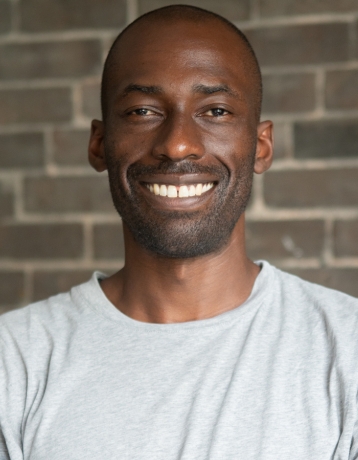Brian Obiri-Asare
BIOGRAPHY
Brian Obiri-Asare is a writer and arts worker of Akan heritage who, for the most part, lives and labours in Sydney, Australia. Working across prose, poetry, the essay, and play form, his practice centers on the written word and engages with the complexities and contradictions of living in a multi-racial society. This engagement is spurred, on the one hand, by his cultural patrimony, which nudges him into a creative struggle between his ‘African-ness’ and his ‘Australian-ness,’ to arrive at an experimental and playful space that strives to make room for both, and, on the other, a commitment to exploring the multiple layers of blackness as it relates to and complicates structures of power, knowledge, visibility, and representation. Brian was the recipient of the 2021 Northern Territory Literary Award for Poetry and was shortlisted for the 2020 Judith Wright Poetry Prize. His poems have appeared in Meanjin, Cordite, Rabbit Poetry, Overland, and other spaces, and have previously received welcome support through an Arts NT Varuna Fellowship and an International Lamplight Residency.
PROJECT
At Nawat Fes, Brian Obiri-Asare will work on developing a full-length poetry manuscript. Anchored in the desert, his intention is to draw upon the metaphoric and spiritual resources of such a setting to craft and shape an interlinked series of poems. These poems will unfold as a meditation on literature, community, and place in the aftermath of a disaster too painful to approach directly. There’s a certain grappling that will occur here, with silence, with alienation, with forced migration, with exile, with the past, with the racialized impacts of a shifting climate. And it is hoped that through this grappling, a space will open, a space that evidences, through the uncanny magic of poetry, the possibility of imagining and living and dreaming and breathing freely together again in the afterlife of major disruption.
While residing in Fez, the historical center of Moroccan Sufism, Brian welcomes the opportunity to lean into and deepen his knowledge of both Sufism and Sufi poetry. How these influences will color his work is something he's openly excited about.

